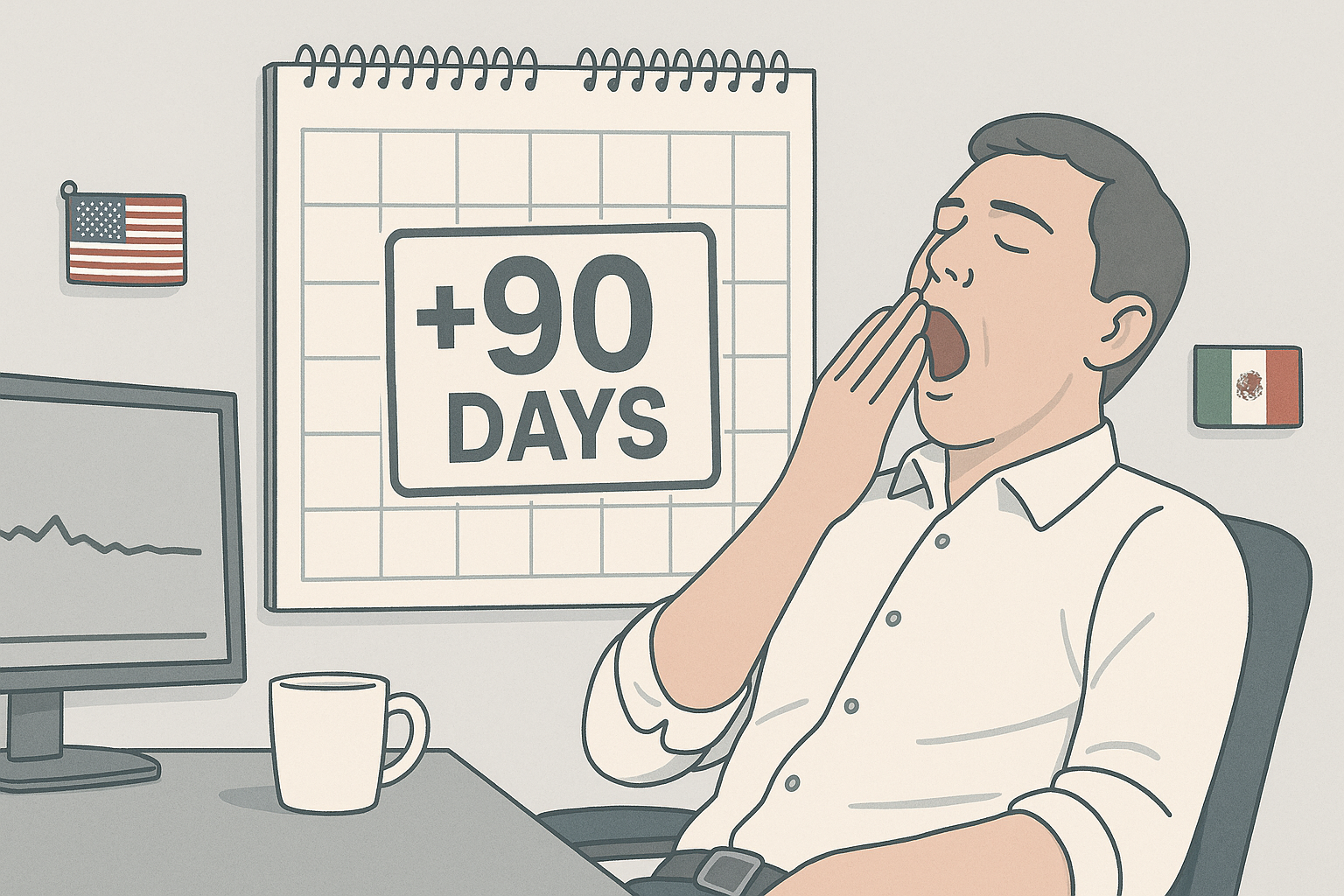Former President Trump has kicked the can down the road—again—with his announcement of a 90-day extension to the Mexico tariff deal. The news landed with all the impact of a feather on concrete in financial circles.
I've been watching Trump's trade theatrics since his first term, and honestly, there's something almost comforting about the predictability of his unpredictability. The man has turned international trade negotiations into something resembling a WWE event, complete with dramatic threats, last-minute reversals, and an audience that's increasingly in on the game.
The extension itself? Not particularly newsworthy. What's fascinating is how we've all adapted to this peculiar brand of economic brinksmanship.
Markets barely flinched. The Mexican peso strengthened slightly (about as exciting as watching paint dry), while U.S. companies with Mexican manufacturing interests saw their stocks tick up just enough to notice if you were really paying attention. Which most people weren't.
"We've developed what I call 'Trump trade fatigue,'" explained Maria Vasquez, chief economist at Meridian Capital, when I spoke with her yesterday. "The initial shock value has worn off. Most institutional investors now build in a 'drama discount' to these announcements."
Look, we've all seen this movie before. Remember the NAFTA reboot saga? Or the endless China trade war cycles? The playbook hasn't changed: threaten apocalyptic tariffs, accept modest concessions, declare unprecedented victory, repeat until everyone's exhausted.
What has changed is corporate America's response.
Most major multinationals have developed sophisticated contingency planning around trade disruptions. They war-game scenarios, maintain flexible supply chains, and keep updated impact assessments ready. Uncertainty itself has become—paradoxically—a predictable business expense. (Not ideal, but here we are.)
The questions nobody seems interested in asking: Has Mexico actually delivered on any of the promises that prevented the tariffs in the first place? The original threats centered around immigration enforcement, drug trafficking interdiction, and investment guarantees. Has substantial progress been made? Or was this extension simply an admission that the original timeline was theatrical rather than practical?
I reached out to three different trade policy experts for comment. Two didn't bother responding (telling in itself), and the third just laughed before saying, "Does it matter?"
There are winners in this ongoing drama. Trade lawyers, customs brokers, and supply chain consultants are quietly building small fortunes in the uncertainty economy. Nothing drives billable hours quite like regulatory chaos.
For everyday investors, though, the lesson remains frustratingly consistent: learn to distinguish between sound and fury versus actual policy change. The market has gotten surprisingly good at this—perhaps explaining why trading desks across Wall Street responded to Trump's announcement with collective yawns.
Someday, perhaps, we'll return to boring, predictable trade relations... but I wouldn't bet on it happening anytime soon. The ratings are just too good.
And so another chapter closes in America's ongoing trade reality show. Same characters, familiar plot twists, slightly adjusted timeline. Markets shrug, analysts update their models, and somewhere, a trade lawyer books another vacation home.
